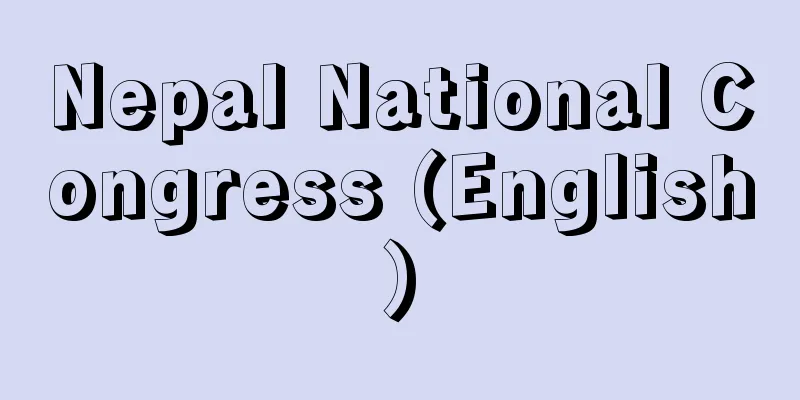Nepal National Congress (English)

|
In 1960, the king seized full power in a royal coup, ending the party politics of the 1950s. This was said to be the result of the king and his former powers rebelling against the socialist land reform policy and pro-India diplomatic stance of the Nepal National Congress. The king's side also cited corruption on the part of political parties and inefficiency in the administration as reasons for the rebellion. *Some of the terminology that refers to the "Nepal National Congress" is listed below. Source | Heibonsha World Encyclopedia 2nd Edition | Information |
|
…1960年〈国王クーデタ〉により全権を掌握し1950年代の政党政治を終わらせた。これはネパール国民会議派Nepal National Congressの社会主義的農地解放政策やインド寄りの外交姿勢に国王および周辺の旧勢力が反発した結果といわれる。また国王側からは政党側の不正,行政の非能率などが理由とされた。… ※「Nepal National Congress」について言及している用語解説の一部を掲載しています。 出典|株式会社平凡社世界大百科事典 第2版について | 情報 |
>>: nēparu (English spelling) neparu
Recommend
Lawyer - Houka
A school of thought from the Warring States perio...
Kaga Silk
〘Noun〙 (also "kagakinu") Silk fabric pro...
Gundolf - Gundolf (English spelling) Friedrich Gundolf
German (Jewish) literary historian and poet. His ...
Merit rating
…Even in the United States, the terminology has c...
Kaomi - Kaomi
...In the Kansai region and west, it is common to...
Anzaibo - Anzaibo
…In the Song Dynasty, as cities developed and poo...
Tomo no Kowamine
Date of birth and death unknown. An official in t...
Izbrannaya rada (English spelling)
…a priest from Novgorod who was the head priest o...
Bodhi tree
... The bodhi tree, under which Shakyamuni attain...
King Yama - Enmaou (English spelling)
Yama is a transliteration of Yama. It is also call...
Kahoku [town] - Kahoku
An old town in the middle reaches of the Monobe Ri...
Yalta (English spelling) Ялта/Yalta
It is a resort city on the southern coast of the ...
Bald cypress
…It is a misconception that Mizumatsu (water pine...
Identity - English spelling: identity
When two expressions can be connected with an equa...
Bougainvillea glabra (English spelling) Bougainvillea glabra
…[Kazuo Furusato]. … *Some of the terminology tha...









